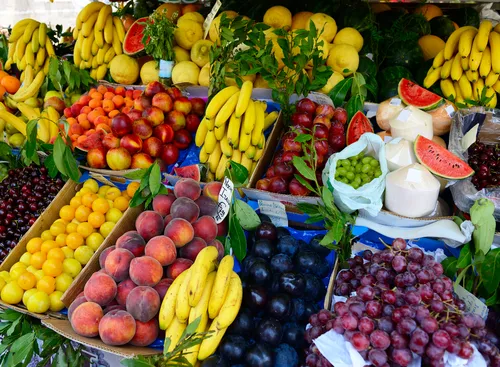For some people who have hay fever, fresh fruits, vegetables and certain nuts can trigger an allergic reaction that causes the lips/mouth to tingle or itch. It can also cause throat swelling or itching all over the body. This is also known as “oral allergy syndrome.” What causes this immune reaction? This reaction occurs because the structure of proteins found in some fruits and vegetables are identical to those found in pollen. These identical proteins confuse the immune system and initiate an allergic reaction as if it was the pollen that the individual is sensitive to.
What are the symptoms or oral allergy syndrome?
The most frequent reaction involves itchiness or swelling of the mouth, face, lip, tongue and throat. Symptoms usually appear immediately after eating raw fruits or vegetables, although the reaction can occur more than an hour later. Systemic reaction like throat swelling or anaphylaxis (life threatening reaction) are rare, however, can happen in very allergic individuals. Hence, visiting with a board certified allergist is important. Does it occur only during the pollen season? It can occur at any time of the year. Some research studies suggest that pollen food allergy syndrome worsens during the pollen season of the pollen in question.
How do you diagnose pollen food allergy syndrome?
History taking by an allergist or your physician is the best way to diagnose this condition. There is no definitive test for the syndrome however, skin prick test to the environmental allergen (like trees, grasses and weeds) along with skin prick test to the “culprit” food can be used for identification. What are some of the examples of this cross-reactivity of food and pollen? For instance, if you are allergic to birch tree pollen, a important airborne allergen in Idaho during springtime, you may have reactions triggered by fresh peach, apple, pear, kiwi, plum, coriander, fennel, parsley, celery, cherry and carrot. People sensitive to grasses may have a reaction to peaches, celery, tomatoes, melons (cantaloupe, watermelon and honeydew) and oranges. Those with sensitivity to ragweed might have symptoms when eating foods such as banana, cucumber, melon, and zucchini. How should we manage these symptoms? Should we carry adrenaline autoinjector? Avoid eating these foods should be the mainstay. However, discussing these reactions and getting evaluated by a board certified allergist is extremely important to develop a personalized plan for yourself. An allergist can also decide whether or not, your symptoms warrant carrying adrenaline autoinjector with you at all times. The allergist can also use various methods to ascertain the risk associated with these “culprit” foods. Baking at high temperature or microwaving the food can denature the protein structure and hence, prevents the allergic reaction that happens with fresh food. Sometimes, peeling the food before eating may also be helpful, as the offending protein is often in the skin.


